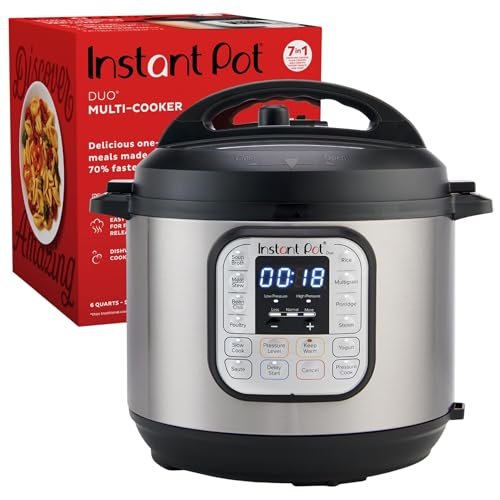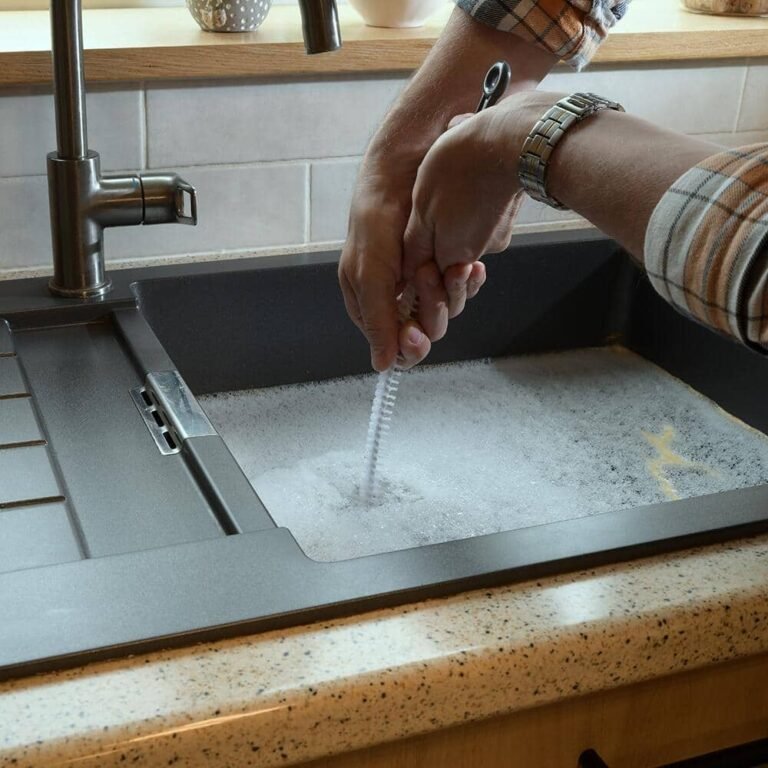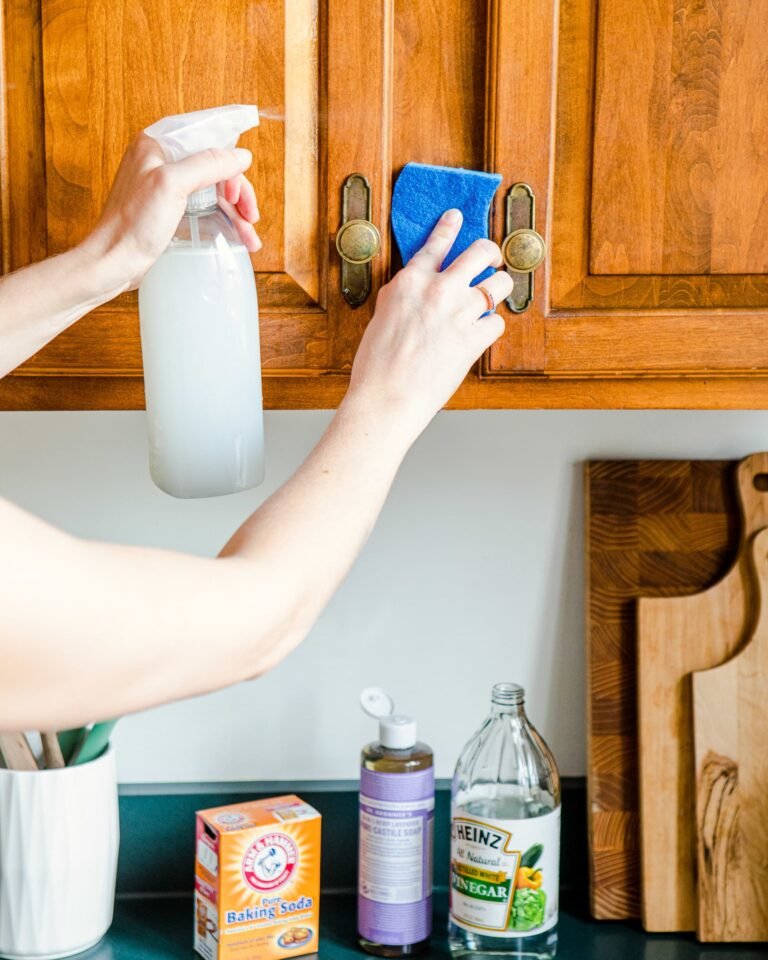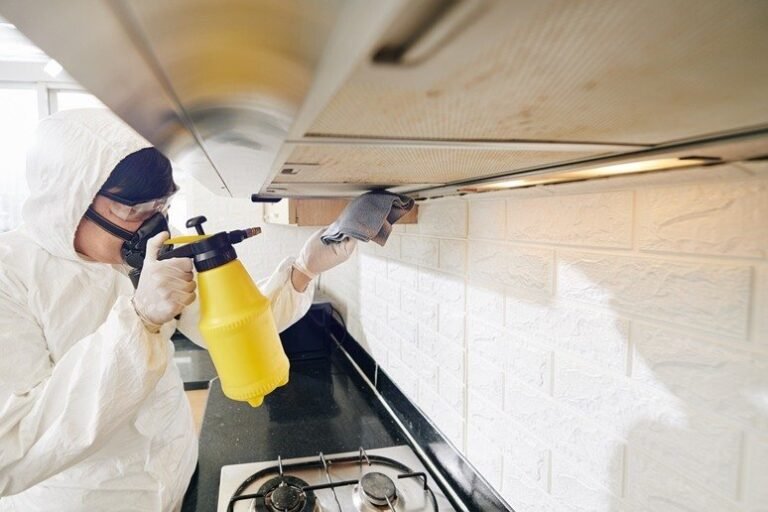What is the Best Drain Cleaner for Kitchen Sink: Top Picks
Picture this: you’re in the middle of cooking your favorite meal, and suddenly, the water in your kitchen sink refuses to drain. Frustrating, right?
A clogged kitchen sink is not just an inconvenience; it can disrupt your entire day. But fear not! You’re about to discover the best drain cleaner for your kitchen sink that will save you time, effort, and a whole lot of stress.
In this blog post, we’ll explore top drain cleaners that tackle stubborn clogs effortlessly. Get ready to make your kitchen sink drain smoothly again, and say goodbye to annoying backups for good. Keep reading to find out which product is perfect for your needs and why it might just become your new best friend in the kitchen.
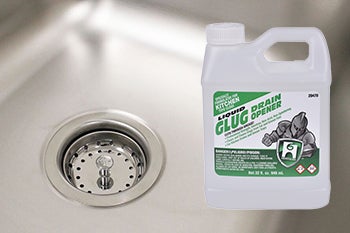
Credit: www.oatey.com
Common Causes Of Kitchen Sink Clogs
Food scraps, grease, and soap residue often lead to kitchen sink clogs. Choosing the right drain cleaner is essential. A powerful enzyme-based cleaner can efficiently dissolve buildup, ensuring smooth drainage.
Have you ever faced the frustration of a clogged kitchen sink? You’re not alone. Understanding the common culprits behind these clogs can help you take preventive measures and choose the best drain cleaner for your kitchen sink. Let’s dive into the usual suspects that can turn your kitchen sink into a miniature disaster zone.Food Particles
Food particles are sneaky offenders. Even with a strainer, small bits can slip through and accumulate in the pipes. Over time, these particles can create blockages that halt your sink’s drainage. Have you ever washed a plate, only to find bits of rice or pasta going down the drain? It’s these everyday actions that contribute to the problem. Regularly clearing your sink strainer can help, but sometimes it’s not enough.Grease Buildup
Grease is another major player in the clogging game. When you pour hot grease down the sink, it might seem harmless. But as it cools, it solidifies, sticking to the pipe walls. This buildup can gradually narrow the passage, leading to stubborn clogs. Have you noticed how a pan gets greasy even after you’ve wiped it clean? That same grease can wreak havoc in your pipes. To minimize this, consider discarding grease in a separate container instead of down the drain.Foreign Objects
Sometimes, it’s not just food and grease that cause issues. Foreign objects like small utensils, plastic wrappers, or even jewelry can accidentally find their way into the sink. Once lodged in the pipes, these items can cause serious blockages. Have you ever dropped something important down the sink and felt that immediate panic? It’s a reminder to be cautious about what goes near the drain. Keeping a vigilant eye and using sink guards can prevent these mishaps. Understanding these common causes can arm you with the knowledge to prevent clogs and select the most effective drain cleaner for your needs. So next time you’re in the kitchen, think about these factors and how you can tackle them head-on. What’s your biggest kitchen sink clogging culprit? Share your experience and solutions in the comments below!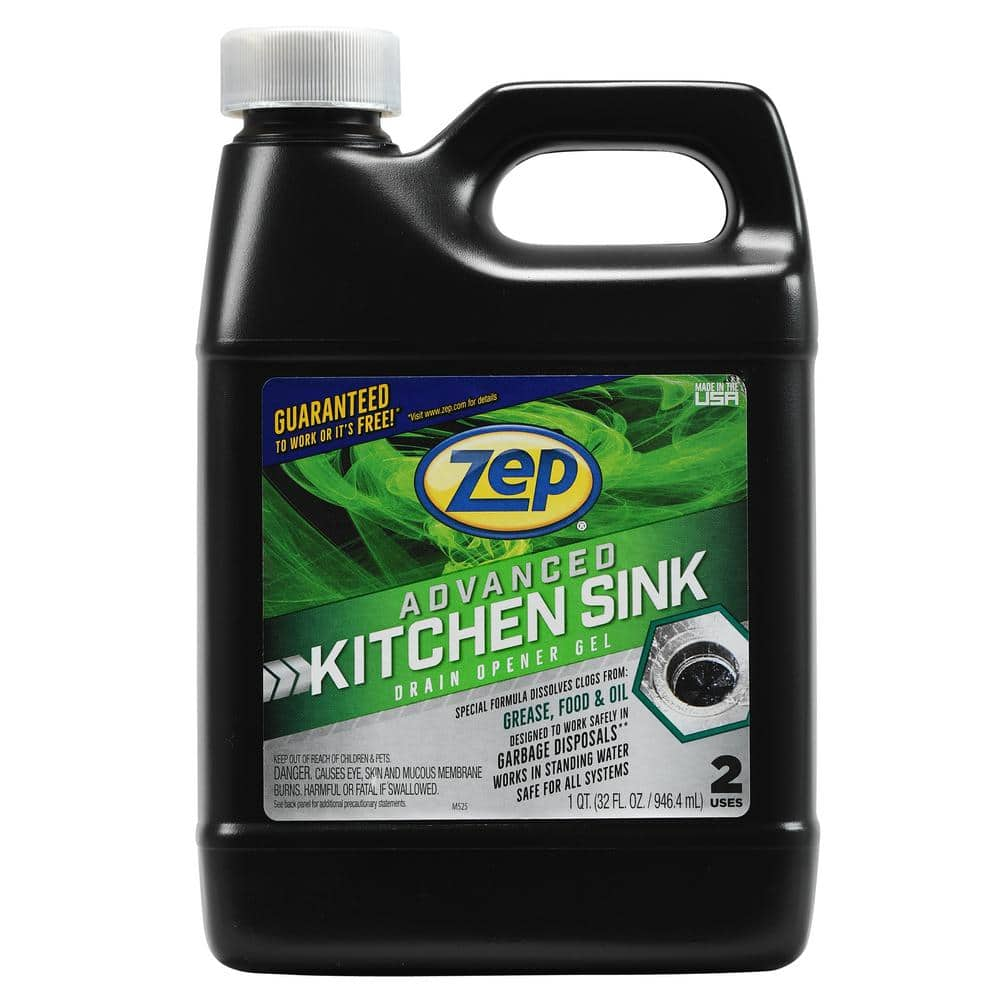
Credit: www.homedepot.com
Types Of Drain Cleaners
Keeping your kitchen sink clean is crucial. Clogs can disrupt your daily routine. Choosing the right drain cleaner matters. There are several types. Each has its advantages and disadvantages. Understanding them can help maintain a clear drain.
Chemical Drain Cleaners
Chemical drain cleaners are powerful. They dissolve clogs quickly. These cleaners use strong acids or alkalis. They can cut through hair, grease, and food particles. They work fast, often in minutes. But they can be harsh on pipes. Use them sparingly. Always follow safety instructions. Wear gloves and protective eyewear. Ventilate the area well.
Enzyme-based Cleaners
Enzyme-based cleaners are gentle. They use natural enzymes to break down clogs. These cleaners are safe for your pipes. They are eco-friendly too. Enzymes digest organic material slowly. They work best with regular use. These cleaners keep drains clear over time. They are ideal for maintenance. They are less effective for severe clogs.
Natural And Diy Solutions
Natural solutions are safe and easy. Many people use baking soda and vinegar. Pour baking soda down the drain. Follow with vinegar. Let it fizz for a few minutes. Rinse with hot water. This method is gentle and eco-friendly. It helps with minor clogs. It is also a great maintenance tool. Lemon juice and salt can also work. They help keep your sink fresh. Try hot water and dish soap for greasy clogs. These solutions are budget-friendly.
Features To Consider
Choosing the right drain cleaner for your kitchen sink can be challenging. Various factors influence the best choice. Effectiveness, safety, environmental impact, and cost are essential features. Understanding these can help you make an informed decision.
Effectiveness
A drain cleaner must clear blockages efficiently. It should dissolve grease, food particles, and soap scum. Look for products with strong cleaning agents. They ensure a smooth flow and prevent future clogs.
Safety Concerns
Safety is vital in any household product. Check if the cleaner is non-toxic. Avoid harsh chemicals that might damage pipes. Consider products safe for septic systems. This protects your plumbing and your health.
Environmental Impact
Consider the environmental footprint of your drain cleaner. Opt for biodegradable options. They reduce pollution and are eco-friendly. Green products are gentle on the earth. Choose ones that support sustainability.
Cost And Value
Cost matters, but value is key. Compare prices and read reviews. Sometimes a higher price means better quality. Ensure you get good results for the money spent. A cost-effective cleaner can save you in the long run.
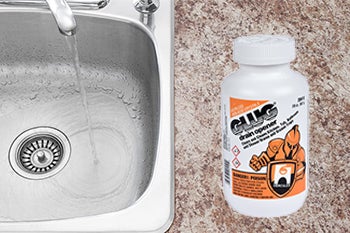
Credit: www.oatey.com
Top Chemical Drain Cleaners
Finding the best drain cleaner for a kitchen sink involves considering effectiveness and safety. Liquid-Plumr and Drano Max Gel are popular choices. These products efficiently dissolve clogs and are easy to use, making them suitable for routine kitchen maintenance. Always follow the instructions for best results.
When your kitchen sink gets clogged, reaching for a chemical drain cleaner can be a quick fix. But which one should you choose? With so many options on the market, it can be overwhelming. Not all drain cleaners are created equal, and picking the wrong one can lead to more problems than solutions. Let’s dive into some of the top chemical drain cleaners available and see which might be the right fit for your needs.Leading Brands
Several brands have made a name for themselves in the world of chemical drain cleaners. Drano and Liquid-Plumr are household names, known for their effectiveness in tackling tough clogs. Green Gobbler offers a more eco-friendly option, appealing to those looking to reduce their environmental footprint. Each brand promises to clear clogs swiftly, but your choice might depend on specific needs, like the type of clog or the material of your pipes.Pros And Cons
When selecting a chemical drain cleaner, it’s crucial to weigh the benefits and drawbacks. Pros: – Quick Action: Chemical cleaners work fast, often clearing clogs in minutes. – Easy to Use: Simply pour and wait—no tools or elbow grease required. – Widely Available: You can find them in most grocery stores and online. Cons: – Harsh Chemicals: These can damage pipes over time, especially if used frequently. – Environmental Impact: They can harm the environment if not disposed of properly. – Health Hazards: Fumes can be harmful if inhaled; always use in a well-ventilated area. Have you ever wondered if the quick fix is worth the potential risks? It’s essential to consider both the immediate and long-term effects of using chemical cleaners. Choosing the right product involves more than just picking a popular brand. It’s about understanding your unique needs and the implications of each option. By making an informed choice, you can ensure your kitchen sink stays clear without compromising the health of your pipes or the environment.Best Enzyme-based Options
Enzyme-based drain cleaners effectively tackle kitchen sink clogs without harsh chemicals. These cleaners break down organic materials, ensuring smooth drainage. Choose options with natural enzymes for safe and efficient cleaning.
When dealing with a clogged kitchen sink, finding the best drain cleaner can feel like a daunting task. Enzyme-based options have emerged as a popular choice, offering a safer and more environmentally friendly way to tackle stubborn clogs. These cleaners use natural enzymes to break down organic materials, leaving your pipes clean without harsh chemicals. But what makes these options stand out, and are they right for your kitchen sink?Popular Choices
Enzyme-based drain cleaners are gaining traction due to their effectiveness and eco-friendliness. Green Gobbler and Biokleen are two names that frequently pop up when discussing enzyme-based solutions. Both brands offer powerful formulas that digest organic matter, making them ideal for kitchen sinks clogged with food residues and grease. Green Gobbler is often praised for its fast action and ability to handle even the most stubborn clogs. Biokleen, on the other hand, is loved for its non-toxic ingredients and gentle effect on plumbing. Have you tried either of these, and how did they work for you?Advantages And Disadvantages
Enzyme-based drain cleaners bring several benefits to the table. They are biodegradable and safe for pipes, which means you can use them without worrying about damaging your plumbing or the environment. This makes them an excellent choice for households looking to reduce their chemical footprint. However, they do have some downsides. Enzyme-based cleaners tend to work slower than their chemical counterparts. If you’re in a rush to clear a clog, patience will be your ally. Additionally, these cleaners may not be as effective on clogs caused by non-organic materials. Consider these factors before deciding on an enzyme-based option. Are you willing to trade speed for safety and sustainability? Your answer might just lead you to a cleaner, greener kitchen sink solution.Natural Drain Cleaning Methods
Kitchen sinks often get clogged with food particles and grease. Using natural drain cleaners can be a safe and effective solution. These methods avoid harsh chemicals, keeping your pipes in good condition. They are easy to use and require common household items. Let’s explore some natural drain cleaning methods.
Vinegar And Baking Soda
Vinegar and baking soda make a powerful cleaning duo. Start by pouring half a cup of baking soda into the drain. Follow it with half a cup of white vinegar. The mixture will fizz and bubble. This reaction helps break down clogging materials. Let it sit for 15 minutes. Rinse with hot water. This method is simple and effective.
Salt And Hot Water
Salt and hot water can clear minor clogs. Pour half a cup of salt into the drain. Heat a pot of water until it boils. Carefully pour the hot water into the drain. The salt helps scrub away grime. The hot water melts grease and flushes debris. Repeat if necessary for stubborn clogs.
Lemon Juice And Borax
Lemon juice and borax offer a natural cleaning solution. Mix half a cup of lemon juice with half a cup of borax. Pour this mixture down the drain. Let it sit for an hour. The acidity of the lemon helps break down buildup. Borax acts as a disinfectant. Rinse with warm water to clear the drain. This method leaves a fresh citrus scent.
Preventative Measures
Keeping your kitchen sink in top condition demands more than just using the best drain cleaner. Preventative measures ensure your sink remains clog-free and functioning efficiently. Regular maintenance and proper waste disposal play crucial roles in this process. Let’s explore some simple strategies to keep your sink in perfect shape.
Regular Maintenance
Regular maintenance of your kitchen sink helps prevent clogs. Clean your sink weekly to remove small debris. Use hot water to flush the pipes. This keeps buildup from forming. Baking soda and vinegar can be used monthly. These natural cleaners help break down grease.
Proper Disposal Of Waste
Disposing of waste correctly is vital. Avoid pouring grease down the sink. It solidifies and clogs pipes. Dispose of food scraps in a compost bin. This reduces the risk of clogs. Always scrape plates into the trash. This prevents large particles from entering the drain.
Using Sink Strainers
Sink strainers are essential tools. They catch food particles and prevent blockages. Choose a strainer with fine holes for best results. Clean strainers daily to ensure efficiency. Remove and empty them after each use. This simple step keeps your drains clear.
Frequently Asked Questions
What Liquid Do Plumbers Use To Unclog Drains?
Plumbers typically use liquid drain cleaners containing strong chemicals like sulfuric acid or sodium hydroxide. These chemicals dissolve clogs efficiently. Enzyme-based cleaners are also popular for eco-friendly solutions, breaking down organic material in pipes. Always follow safety precautions when using these products to prevent damage and ensure effective results.
What’s The Best Way To Clean A Kitchen Sink Drain?
Use baking soda and vinegar to clean the drain effectively. Pour half a cup of baking soda, followed by half a cup of vinegar. Let it sit for 15 minutes. Rinse with hot water to clear debris and eliminate odors.
Regular cleaning maintains a fresh and functional drain.
Do Baking Soda And Vinegar Work Better Than Drano?
Baking soda and vinegar can clear minor clogs but are less effective than Drano for tough blockages. Drano contains strong chemicals designed to dissolve stubborn clogs quickly. For severe issues, Drano is generally more reliable and faster. Baking soda and vinegar are eco-friendly alternatives for regular maintenance.
What’s Better, Liquid Plumr Or Drano?
Liquid Plumr and Drano both effectively clear clogs. Liquid Plumr is gentle on pipes and septic systems. Drano offers fast action for tough clogs. Choose based on your plumbing needs and clog severity. Always follow product instructions for safety.
What Is The Safest Drain Cleaner For Kitchen Sinks?
Safe drain cleaners use natural enzymes or bacteria. They effectively break down organic waste without harming pipes or the environment.
Conclusion
Choosing the best drain cleaner for your kitchen sink can simplify life. It’s important to know your options. Consider the severity of the clog. Also, think about the safety of ingredients. Some cleaners work faster. Others are more eco-friendly. Always read instructions carefully.
Regular maintenance helps prevent future clogs. A clean sink ensures smooth kitchen operations. Remember, an effective drain cleaner saves time and stress. Keep your kitchen sink flowing freely and efficiently.


